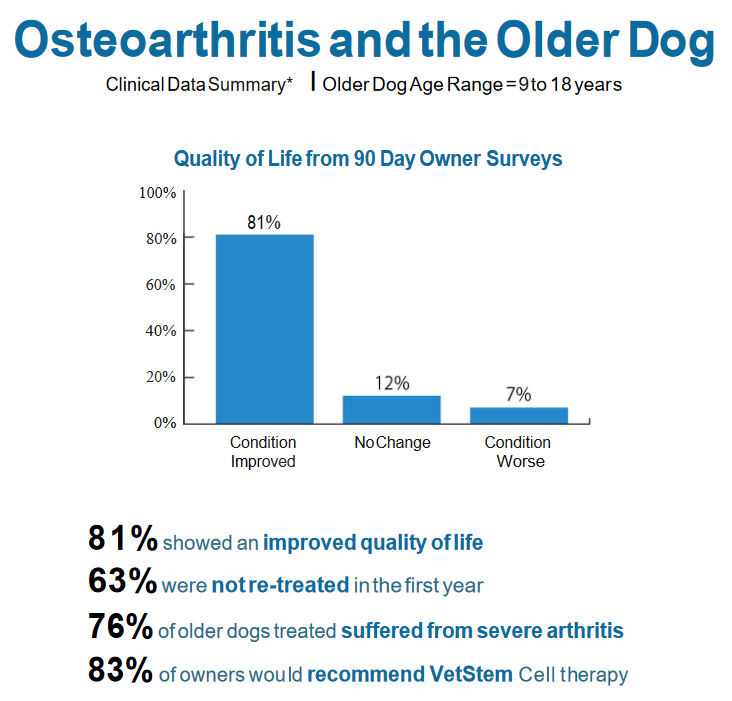VetStem Cell Therapy for Senior Pets with Osteoarthritis
November is National Senior Pet Month, and we want to show those frosted-faces some extra special attention in this week’s blog! Like people, increased age is a risk factor associated with osteoarthritis. One study conducted in the UK indicated that dogs over eight years old were most frequently diagnosed with osteoarthritis. The same study found that dogs over twelve years had the greatest odds of being diagnosed with osteoarthritis compared to other age groups. These findings support the notion that osteoarthritis is predominantly a disease of aging.

Osteoarthritis is the Number 2 Reason for Euthanasia
Given that approximately 1 in 5 dogs in the United States are affected by osteoarthritis, it comes as no surprise that the disease has previously been labeled as the second most common reason for euthanasia. Though there are several treatment options available to help alleviate the symptoms of arthritis, many of them come along with unpleasant side effects and/or begin to lose efficacy after prolonged use.
VetStem Cell Therapy for Osteoarthritis
While it is not a cure for osteoarthritis, as there is no cure for this progressive disease, many arthritic pets have benefited from treatment with VetStem Cell Therapy. Based on information obtained from veterinarians and dog owners, 81% of arthritic older dogs who were treated with VetStem Cell Therapy experienced an improved quality of life. In addition, 63% were not re-treated in the first year, meaning the benefits of stem cell therapy lasted longer than a year. Below are some additional numbers regarding older dogs who received VetStem Cell Therapy for osteoarthritis.

Is VetStem Cell Therapy Right for your Senior Pet?
Though stem cell therapy may lead to a better quality of life in some pets, it may not be the best option for your pet if they do not tolerate anesthesia well or if they have active cancer, which is more prevalent in older pets and is contraindicated with VetStem Cell Therapy. Thus, if you think your pet may benefit from treatment with stem cells, the first place to start is talking with your veterinarian. He/She can perform a comprehensive exam to determine if your pet may be a good candidate for stem cell therapy.
Need to find a vet who provides VetStem Cell Therapy? Click here.
